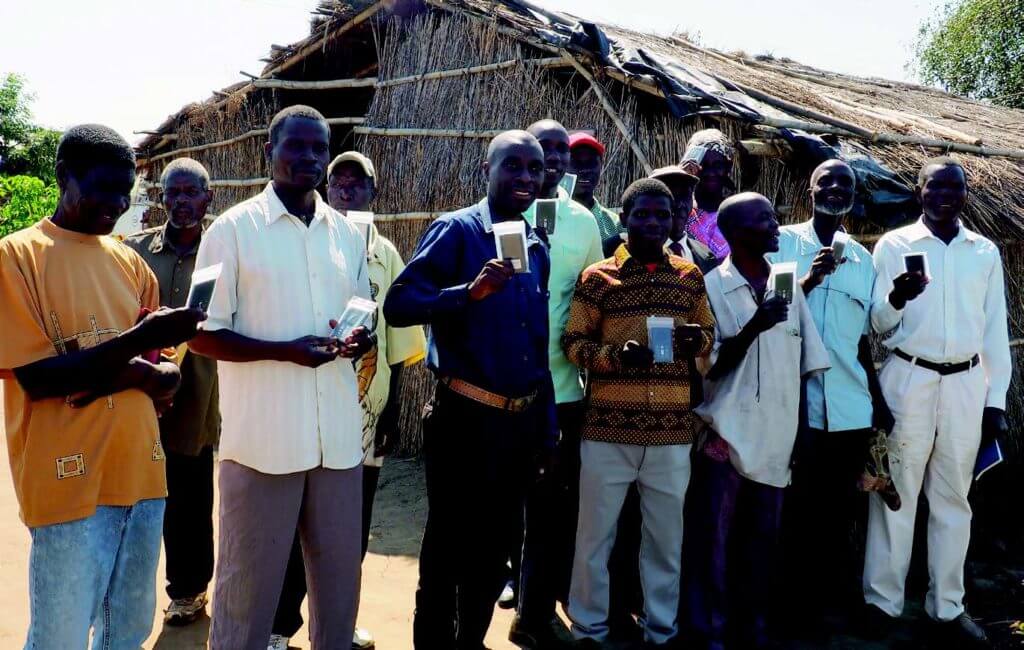From internet shy to internet savvy: getting your ministry into the digital space
AfriGO Team

Not long ago, the AfriGO team filmed an interview with a young missionary whom we wanted to feature on our Facebook page. The setting was pleasant, and he had a compelling story to share. However, the sound quality was poor. Passing cars and blowing wind created a noisy background. This problem could have been solved by filming indoors in a well-lit room or in an area sheltered from the wind, and by using a simple microphone to record his speech. But we had not planned ahead. In the end, we added subtitles to the video so we could use it. We missed an opportunity to create a video which could be widely shared and enjoyed.
This is the experience of many people who are new to digital media, whether you are a communications professional or a non-professional who finds yourself needing to use digital platforms. You may have an idea of what you want to achieve, but you lack the experience, tools or foresight to produce the finished product you hope for. You are not alone. The COVID pandemic has quickly forced many to use digital tools and communicate in online environments they have never used before. Consider some principles that will assist you.
PURPOSE
First, identify your purpose clearly. What do you want to achieve? Who is your audience? What do you want them to do after hearing your message? Once you know your goal, choose how to reach it. Will you need a website or social media? Which platform? Each channel and platform has its own pros and cons. A primary way to decide which platform to use is to consider which one your audience uses. To reach specific people, go where they are in the digital world.
Finally, do you communicate a clear action step for your audience that aligns with your stated purpose? Does your content make people want to do something or will they just move on?
SMART GOALS ARE:
- Specific: the goal is clear, specific.
- Measurable: there are criteria to measure its progress and success.
- Attainable: you have the materials, resources and energy to achieve it.
- Relevant: the goal matters; it matches your purpose.
- Timely: the goal is timebound; it includes tasks with start and finish dates.
PROFESSIONALISM
The quality of our content shows that we respect our audiences, we are serious people, we have a goal and we will work hard to achieve it. It demonstrates our love for God, who tells us: “Whatever you do, work at it with all your heart, as working for the Lord” (Col. 3:23). Your audience has lots of content coming into their phones, and poor-quality content is less likely to be viewed, let alone inspire a response.
Quality does not mean you need top-of-the-line tools. It does mean you have to do your best and research ways to maximize the equipment you have. You may have the best equipment in the world, but if you don’t plan and test first, the result will be mediocre. Keep in mind lighting, steadiness of camera and audio quality. Remember to do a test and review it before doing your big video. Use tools such as Grammarly.com to check format and spelling. Always ask others to proofread your text.
Be especially careful before posting anything sensitive or critical of others online. Get permissions before writing about ministry in dangerous places. Remember, once it goes online, it can be forwarded by others. What you say must also be true; it can be tempting to give a good report even when the ministry is not going well, but we are people of truth.

CONSISTENCY
Once you decide which platforms to use, be consistent. It may be a good idea to create a month’s worth of content before starting, then stay ahead so if you have a busy period in your life, the platform will not go hungry. You will lose your audience if you do not update regularly. Start only what you can maintain. It is better to have no platform than an outdated or abandoned one. Interact consistently with your audience. Social media is a two-way conversation. You are opening yourself to comments, both good and bad, that can be shared and reposted. Always answer questions that arise, thank people for their participation, and immediately delete anything that is inaccurate, vulgar or inflammatory.
YOU GET WHAT YOU PAY FOR
It is tempting to use free services to post content, and that is often perfectly appropriate. However, nothing is truly free. Free trials and websites must collect their money somehow, whether through advertising or giving your personal information to third parties. Be wise and make informed decisions about what you are giving up in order to receive “free” services. Always read the privacy standards of a social media platform before deciding to use it. Some web hosting sites cost very little and provide a much better standard. Network with others to find out what they use and what their experience has been. Do your research.
Investing in low-cost equipment like a lapel microphone or video editing software is another way to up your game. Perhaps rent space at a local radio station to record your audio. Paying for the services of a tech-savvy young person may also be a big help. Never before in the history of the world have God’s people had the ability to reach so many so quickly. Let’s use these opportunities wisely.
RESOURCES
Where can you find help to become more professional in using media technology for ministry? Several Christian groups have created training.
Digital Training Academy:
https://digitalacademy.cru.org/
This training, originally created for the ministry’s staff, has been made available for free to the rest of us. Watch videos or read tips on a wide range of digital media topics.
Magazine Training International:
MTI is dedicated to helping small Christian publishers thrive. Their webinars and resources are often free or low-cost, and can help improve your digital design and editing skills.
Mission Media University:
www.missionmediau.org/courses/
MMU equips missionaries to be better communicators, disciple-makers and church planters as they develop skills in using media, story and innovative technology in their mission. Discounts are available for those from the Majority World.
Training the Trainers Using Technology during COVID:
http//youtu.be/1bGgDv8Tfnc (ed: this link is broken)
This hour-long video from Johannesburg Bible College is an introduction to using media technology as a teacher or trainer. It takes into consideration some of the realities of using technology in Africa.
Strategic Storytelling:
Take this free short course from Kingdom Training to help you engage your audience better.
A pastor uses social media:
Do you want to reach others with the Gospel through social media? One pastor tells his story of doing it and gives advice on how to use your skills in digital space.
WHAT IS A BLOG?
A blog is a series of articles, often with an informal or conversational tone, which appear in order of what is newest. It is usually only one long page and is updated frequently. By contrast, a full website has static content and many pages. Websites may have blogs in them.
There are many options for making your own free website and blog. You will have to pay for a domain name and hosting if you want the site’s name to be yours, i.e. www.[ANameYouChoose].org. Visit www.websitesetup.org to learn about that. On a free site, your site name may be something like www.[ANameYouChoose].wordpress.com.
How to start a Christian blog: https://bit.ly/3kHogG3
Bloggers for the Kingdom: https://bit.ly/3edJha3
